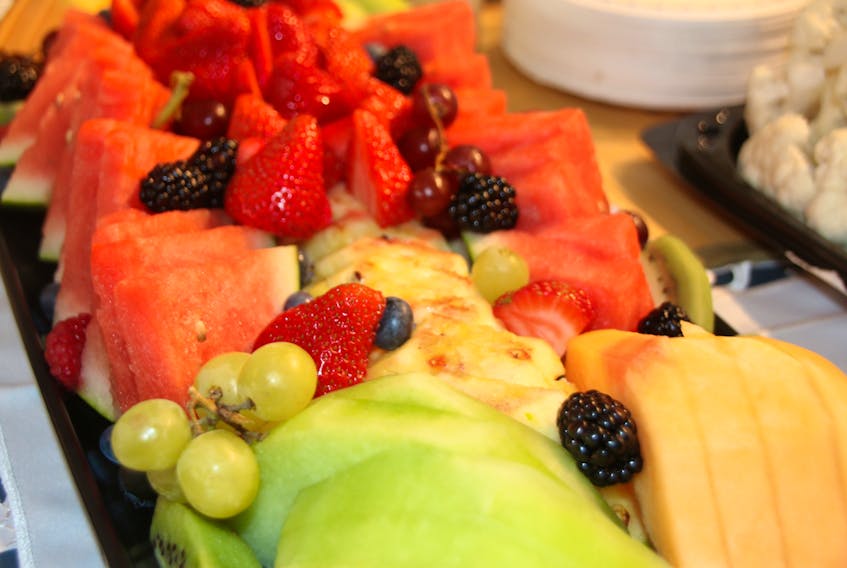TRURO, N.S. — Jennifer Ferguson, a registered dietitian at Sobeys in Truro, has advice for people planning to eat healthier and lose weight.
“One of the big pitfalls is skipping meals,” she said. “People believe cutting calories helps, but if you skip meals it results in starvation during the day, and then you overdo it on less healthy foods later.
“Make sure you eat breakfast. It gets the motor running for the day and prevents the munchies later in the day.”
She finds people often want to make too many changes at once, which can be overwhelming.
“Change one thing at a time,” she advises. “Work on that until you’re comfortable and then move on. If you change too much at once you get frustrated and stop.
“Make changes you can live with for lifetime, because if you return to the same habits odds are the weight will come back.”
She’s not a fan of the low-carbohydrate diets.
“There are lots of versions of low-carb diets out there and studies show they’re not successful in maintaining weight loss. Carbs are the main source of fuel for the brain. We need a certain amount every day. Some are healthier than others, and the problem is the ketogenic diet encourages people to limit all carbs. It ignores the fact that all are not created equal.
“It’s also tricky to stick to something that’s restrictive.”
The Mayo Clinic warns that some diets restrict carbohydrate intake so much they can result in vitamin or mineral deficiencies, bone loss and gastrointestinal disturbances and may increase the risk of some diseases.
“One of the most successful, and one of the simplest, ways to improve your diet is by using the healthy plate,” said Ferguson. “It’s half vegetables and fruits, one quarter starch and one quarter protein.
“It’s always preferable to get nutrients from food, but multivitamins can fill in gaps if we don’t eat certain things.”
She suggests anyone with questions talk to a registered dietitian.
Truro nutritionist shares advice on what works when it comes to diet

STORY CONTINUES BELOW THESE SALTWIRE VIDEOS
Calling Chard: asparagus and leek risotto with chicken | SaltWire








